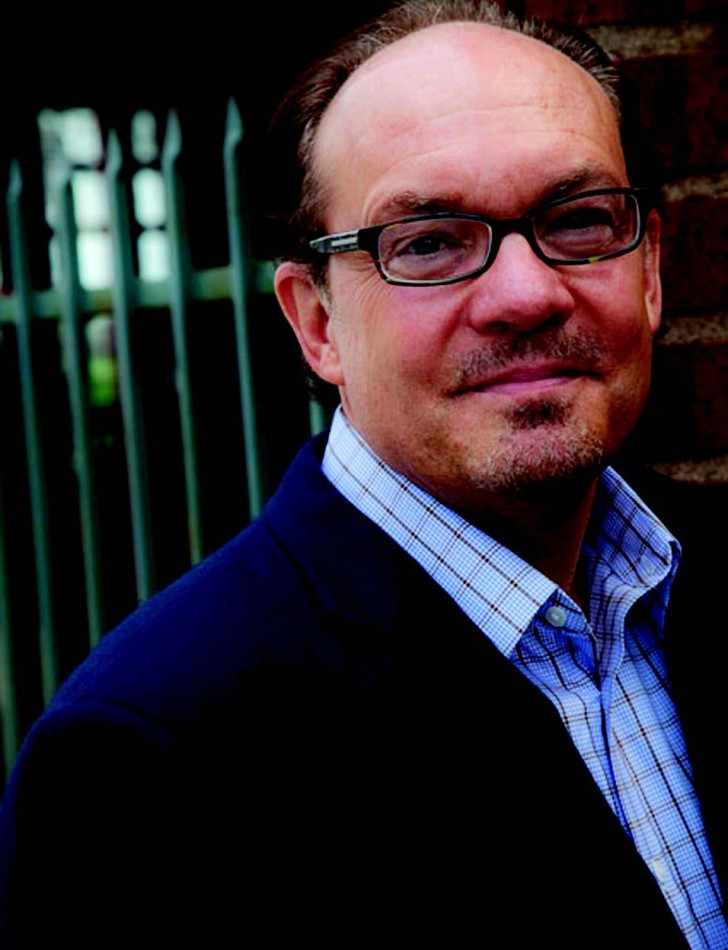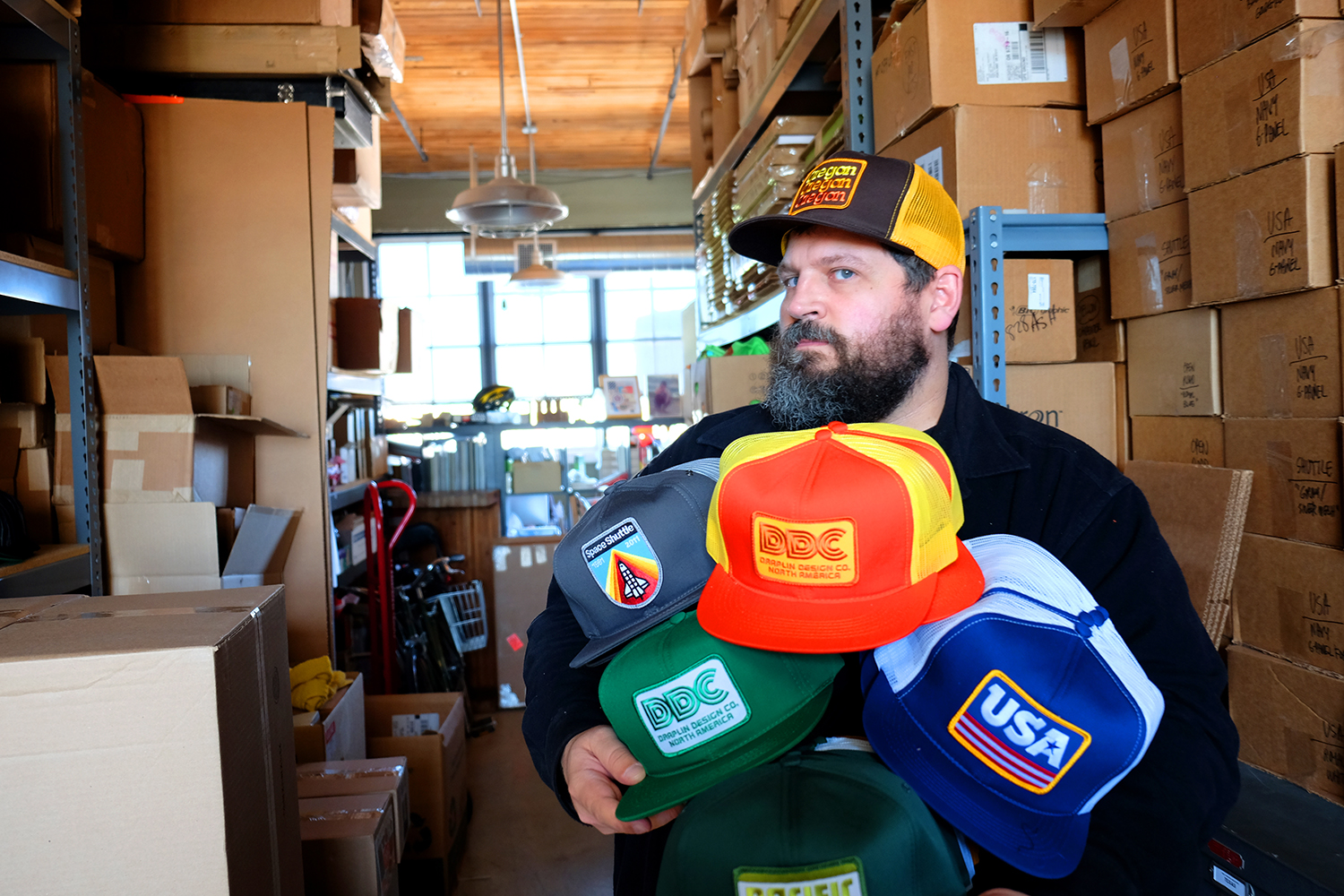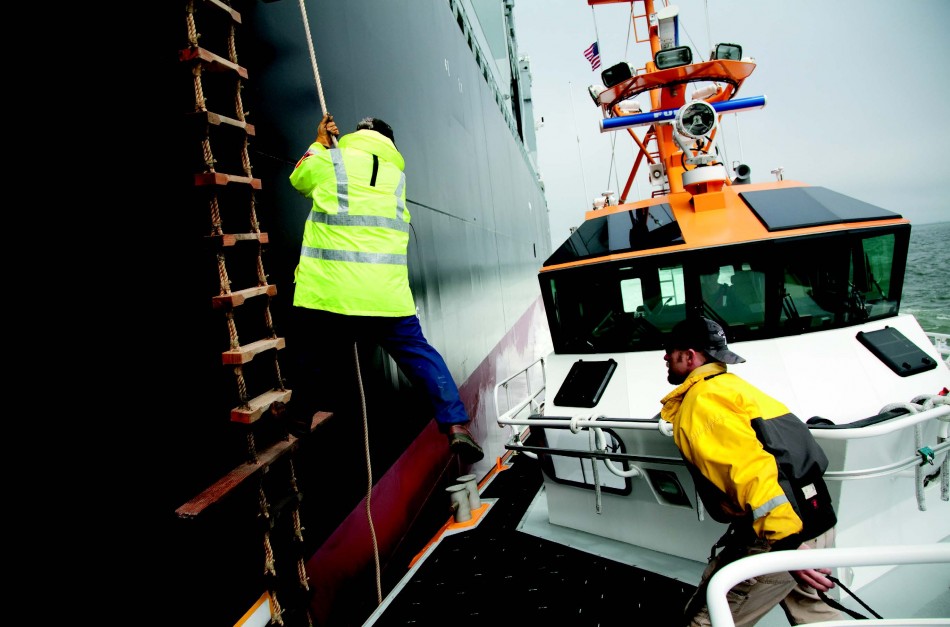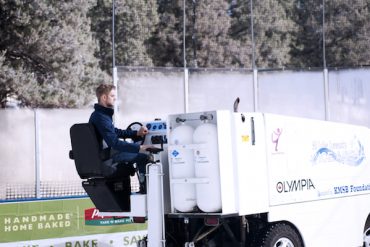written by Ben Opsahl | photo by Joni Kabana
Neal Keny-Guyer could tell you what it feels like to go fly-fishing in Kamchatka. He could express the lasting impact of his trip to the Thai-Cambodian border at the height of conflict in 1980, or what it feels like in Beirut after a car bomb explodes in the middle of an otherwise pleasant afternoon. Chances are, however, he will not tell you any of these things if you don’t ask. A schedule like his leaves little time for storytelling, and Keny-Guyer, the chief executive officer of Mercy Corps, isn’t really the raconteur type anyway.
“People often ask me what the hardest part of my job is,” says the soft-spoken 56-year-old whose vowels are vestigial Tennessee. “It’s not the travel or the workload. It’s finding a balance between your profession, yourself and your relationships.” Balance is a relative term for someone whose schedule has required his presence in Japan, China, Haiti, Sudan, Spain and Oman, all in the first three months of the year.
Since joining the Portland-based international humanitarian relief agency in 1994, Keny-Guyer has spearheaded Mercy Corps’ transformation from a small organization of about 250 employees with a presence in fewer than ten countries to a major program player with a workforce of more than 4,000 and activity in nearly forty countries.
Mercy Corps has become known for its quick response to international need, such as the 2004 tsunami in Southeast Asia, where Mercy Corps had a survey team assessing damage from the coast of Sumatra within twenty-four hours of the disaster, and Hurricane Katrina, when Keny-Guyer led a team of Oregon volunteers to New Orleans to seek permanent solutions in the wake of dissolution.
Despite the chaos that is often Keny-Guyer’s working conditions, transparency and order are central to Mercy Corps’ business. For example, Mercy Corps’ audited financial statements are voluntarily made available online each year, allowing donors to monitor how their money is spent. A LEED certified redevelopment of the Skidmore Fountain Building, the new Mercy Corps headquarters in Portland, was completed in 2009 using no funds designated for aid. A staircase spirals through an open design of four floors built around an open collaborative plan. All throughout, a buzz of people are moving, talking, working. The place feels busy, yet calm—like Keny-Guyer himself.
Managing this growing organization comes with its share of challenges. “It’s a hectic life,” Keny-Guyer says. “There is a lot of travel, the environment can be tough.” As Mercy Corps grows, it is asked to do more and participate in greater forums. The pressure can mount quickly.
Luckily Keny-Guyer has spent a lifetime preparing for this role. Promptly after graduating in 1976 from Duke University with a bachelors degree in public policy and religion, his career began as special projects coordinator for Cities-In-Schools in Washington, D.C., where he worked with at-risk youth to reduce dropout rates and gang activity. From there he ventured to Thailand for CARE and UNICEF in 1980, earned a master’s degree in public and private management from Yale in 1982, spent the following nine years with Save the Children and, in 1990, settled briefly after the birth of his first child.
Throughout this restless journey, Keny-Guyer has accumulated a number of activities and interests to help him manage stress, including two that get him exceptionally excited. “I love floating the Deschutes in Maupin, or walking the clear, cold water of the Metolius,” he says, leaning eagerly forward in his office chair. He most enjoys fly-fishing with close friends, which helps him maintain the relationships that are important to him outside of his professional life. His obsession with “finding the right cast, the right mend and casting across the current” reveals the underside of the astute angler. “It’s the perfect antidote for stress,” he offers.
Beneath his ongoing quest to balance his jarring travel schedule, Keny-Guyer is constantly seeking creative ways for Mercy Corps to provide relief to those in need. He cites as one example a micro-finance campaign in Bosnia, which united Bosnian, Croatian and Serbian interests
by selectively providing loans in ways that required communal effort. It is this restless drive to constantly look for innovative and lasting solutions—not just a temporary fix—that has kept him going. He has found grim reassurance in moments during which mortality became suddenly very real. “Nobody guarantees you tomorrow,” he says of a traumatic experience in Beirut, where a car bomb exploded near him. “You can be a part of change, or not.”
Yet there is something more important to Keny-Guyer than fly-fishing, or even the future of Mercy Corps. “Anyone with a passion knows it takes effort to succeed, but you can’t sacrifice relationships,” he says, speaking of his wife, Alissa, and their three children. “Quality time is more important than quantity time.”









